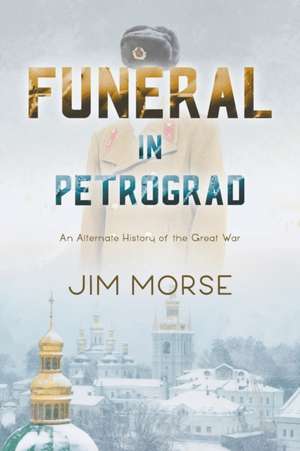Funeral in Petrograd
Autor Jim Morse Editat de Annie Tuckeren Limba Engleză Paperback – feb 2019
Preț: 109.28 lei
Nou
Puncte Express: 164
Preț estimativ în valută:
20.91€ • 21.78$ • 17.67£
20.91€ • 21.78$ • 17.67£
Carte disponibilă
Livrare economică 17 februarie-03 martie
Preluare comenzi: 021 569.72.76
Specificații
ISBN-13: 9780985620943
ISBN-10: 0985620943
Pagini: 362
Dimensiuni: 152 x 229 x 21 mm
Greutate: 0.53 kg
Editura: James O. Morse
ISBN-10: 0985620943
Pagini: 362
Dimensiuni: 152 x 229 x 21 mm
Greutate: 0.53 kg
Editura: James O. Morse
Notă biografică
Jim Morse grew up in a very small town in southeastern Oklahoma, majored in physics at the A&M College of Texas, received a medical degree from the University of Oklahoma School of Medicine, and was board certified in internal medicine and the subspecialty of pulmonary medicine. He served six years in the US Army (Japan, Korea, and Germany), eight years in a mission hospital in Colombia, and twenty-one years in teaching hospitals of the Department of Veterans Affairs and their affiliated medical schools. He has previously published writing of scientific articles in professional journals. In retirement, he pursued fiction and non-fiction writing. In his fifth novel, Long Way Home, he returns to his roots in a fictional town in Oklahoma, loosely basing the first part of his story on the town and people he grew up with the second part a composite of the experience of such people going off to fight in World War II.
